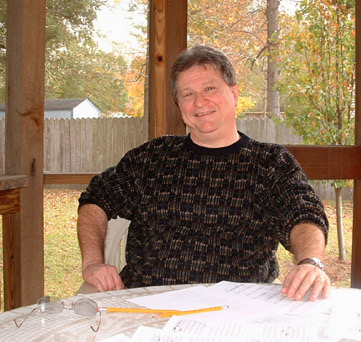Growing up in Cuba during Castro’s revolution I lived a simple lower middle-class life. My dad owned a small store. We lived across the street in an apartment building in the town of San Jose de las Lajas. My dad would take me to the movies every Sunday afternoon. We didn’t own a TV, only a radio. After Castro sealed Cuba’s fate everything changed. My mom and I fled to Florida. My dad stayed behind.
When I was growing up in Miami going to the movies or to Valenti’s Restaurant downtown once a month were considered luxuries by my mom. Later, in my early years of music school In New York City my mother worked as a live-in cook for very wealthy people on the upper East Side. She helped me pay for the part of my schooling that my scholarship to Juilliard didn’t cover. Every now and then her very wealthy employers would take trips to Europe, mostly Switzerland and France where the man of the house visited relatives whose noble ancestry went back centuries. On those times my mother and I as well as two of the other live-in maids had the run of the two-floor apartment on 72 and Madison. I was able to enjoy luxuries far beyond what I had known and far beyond any I’ve yet to afford. Fancy upscale furnishings and artwork, an entire library complete with stereo equipment and televisions, opulent baths, and showers. This was back in the 1970s. Long before computers, laptops, or internet. My particular luxury was sitting in the library in that luxurious atmosphere and reading everything from pop novels to world literature. I’d listen to the great classical masterworks as well as to pop and rock and even Edith Piaf. The high-priced stereo was mine to command. I imagined myself owning the whole place.
Later, on my own, struggling as a young composer to find work, I lived with my wife in a very modest apartment in Union City, New Jersey, a step up from my first basement apartment there, and later in a three-family house in North Bergen, a step up from our first apartment. My situation improved. I was able to have my own recording studio, a real luxury for a musician in those pre MIDI days in the 1980s and early 1990s before musical equipment and sound gear became easily accessible, ubiquitous and cheaply available.
My first marriage crumbled in the late 1990s and I moved to Charleston, South Carolina to be with my second wife. We lived in a modest house that her ex-husband had remodeled. He’d built a gazebo in the back yard, a luxury for that neighborhood and one we enjoyed with backyard picnics and get-togethers.
My prospects continued to improve and eventually we bought a bigger two-level, brand new five-bedroom house we had built for us in a development next to a stretch of Carolina woodland. I was successful in my career writing music for television. I bought a 60-inch flat screen, great new furniture, wi-fi gadgets, new recording equipment. We lived a comfortable life, enjoyed all our new luxuries. And then, after a spate of unexpected personal tragedies I floundered into a patch of deep depression, lost direction and ended up in federal prison.
I remember being driven away from my home by federal agents in handcuffs. It was a bright early morning and people were out jogging, walking their dogs, watering their lawns, oblivious. I knew I was saying goodbye forever to my suburban dream life.
Now my luxuries are extremely small: sufficient toilet paper to last the week; an occasional prison cheesecake made by another inmate; duplex cookies from the commissary; morning coffee and crackers; a quiet lunch alone in my 10 x 8 cell while my cellie and the rest of the overcrowded unit is gone to chow; the availability of a computer to write and do email (which I’m using right now); quiet walks around the rec yard track; a music prison program that allows me to play piano in bands with other inmates. And yes, even an occasional movie on TV or downloaded to my cheap Score 7 tablet so graciously provided for purchase by the Bureau of Prisons.
I’m in a low security federal prison in Texas. This particular institution is now known for its music program after several professional musicians and sound engineers like me ended up here: a lucky coincidence. It’s also relatively peaceful, less violent than higher security compounds. Some guys call it camp cupcake. I’ve heard it called the Ritz Hotel of prisons. My first impression when I arrived here is that it resembled a college campus. If you have to be in prison, I suppose this is the place for it.
So…luxury? I don’t know that the idea is easily definable. I live a very spartan existence now. People may imagine that federal prison is an easy out as compared to state and county lockups. That might have been the case many years ago when places like this one had swimming pools and billiard tables. That ended in the late 1990s when Congress passed the ‘No-Frills-Prison-Act’. Now we inhabit ‘no-frills-prison’. But still, luxury is whatever allows you to relax, to exist calmly, to appreciate the beauty of life, a stunning dawn or a richly colored sunset, the breath of the planet and everything that lives. From that point of view, I suppose I exist in the lap of luxury, and maybe always have and always will…regardless.



No Comments